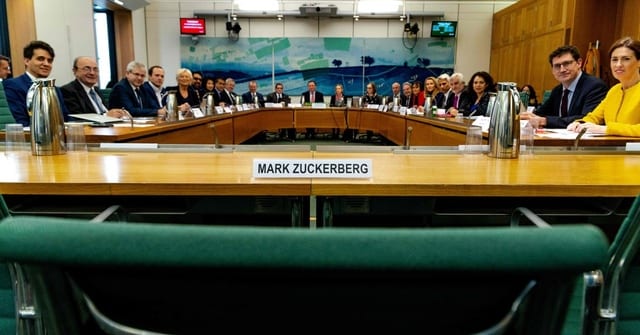The UK Parliament and Facebook’s Confidential Internal Documents
In case you’ve been living under a rock recently, Facebook isn’t holding up as well as it used to. Ever since the Cambridge Analytica Scandal, lawmakers have been trying to get to the bottom of how Facebook deals with users’ data. It seems that the UK’s “International Grand Committee on Disinformation” might have confidential internal documents that prove Zuckerburg’s failed handling of user data. Read on for the full story.

The UK Parliament and Facebook’s Confidential Internal Documents
Facebook’s Internal Documents – The Full Story
In May 2015, a startup by the name Six4Three filed a lawsuit against Facebook. The lawsuit was filed because Facebook changed its policies regarding developer access to friend data. According to Six4Three’s lawyers, the documents include evidence that:
“the Cambridge Analytica scandal was not the result of mere negligence on Facebook’s part but rather the direct consequence of the malicious and fraudulent scheme Zuckerberg designed in 2012 to cover up his failure to anticipate the world’s transition to smartphones”.
These documents were seized earlier this week by the UK parliamentary committee under legal terms during one of Six4Three’s founders’ trip to London. The documents are sealed under an order of a Californian court. However, DCMS committee chair Damian Collins has stated that the documents can be published upon parliament’s discretion.
The @CommonsCMS has received the documents it ordered from Six4Three relating to Facebook. I have reviewed them and the committee will discuss how we will proceed early next week. Under UK law & parliamentary privilege we can publish papers if we choose to as part of our inquiry
— Damian Collins (@DamianCollins) November 25, 2018
NEW: Facebook responds to UK parliament's seizure of internal docs. It is getting its lines of attack out there. This is copy of its letter to @DamianCollins that it has just sent me… pic.twitter.com/lfSeoM1j2l
— Carole Cadwalladr (@carolecadwalla) November 25, 2018
I have written back to Richard Allan at Facebook following their email to me today regarding the documents ordered by @CommonsCMS from Six4Three. You can read a copy of it here pic.twitter.com/lXWS2gOPBM
— Damian Collins (@DamianCollins) November 25, 2018
What Happened At The Hearing?
The International Grand Committee on Disinformation held its inaugural hearing on November 27th, 2018. It even asked Mark Zuckerburg specifically to attend the hearing. The lawmakers, however, were met with Richard Allan, VP for Policy Solutions, instead. The seized internal documents aren’t yet revealed to the public. One particular email thread was brought to light during the hearing though. The thread shows that Facebook may have known about possible Russian hacking years before the Cambridge Analytica scam.
Perhaps the most interesting aspect of Tuesday’s hearing was the determination the lawmakers showed to hold Facebook accountable for its actions. Unlike the hearings Zuckerburg attended in Washington and Brussels earlier this year, Allan wasn’t given the opportunity to sidestep questions directed at Facebook’s indiscretions. In fact, one particular line of questioning, provided by Canadian lawmaker Charlie Angus, highlights this interesting new line of questioning perfectly:
Charlie Angus: When we talk about regulation, would you be interested in asking your friend Mr. Zuckerberg if we should have a discussion about antitrust?
Richard Allan: It depends on the problem we are trying to solve. If the challenge is around –
Charlie Angus: What if the problem is Facebook? That is the problem.
As you can see, Allan wasn’t allowed to answer with vague replies. The question of whether or not Facebook as a platform is doing its job in keeping it’s user’s information secure has yet again been brought to the forefront of the conversation on privacy, hopefully, this time for good.
Facebook’s Internal Documents – Final Thoughts
We might not have to wait too long to find out if these seized internal documents actually provide any evidence against Facebook. According to Damian Collin’s twitter feed, the documents may be released as soon as next week. Hopefully, we’ll finally figure out exactly what the social media giant is doing with all of our data. This might be the step needed to get closer to imposing legal and regulatory limitations on how Facebook handles its user’s information.





